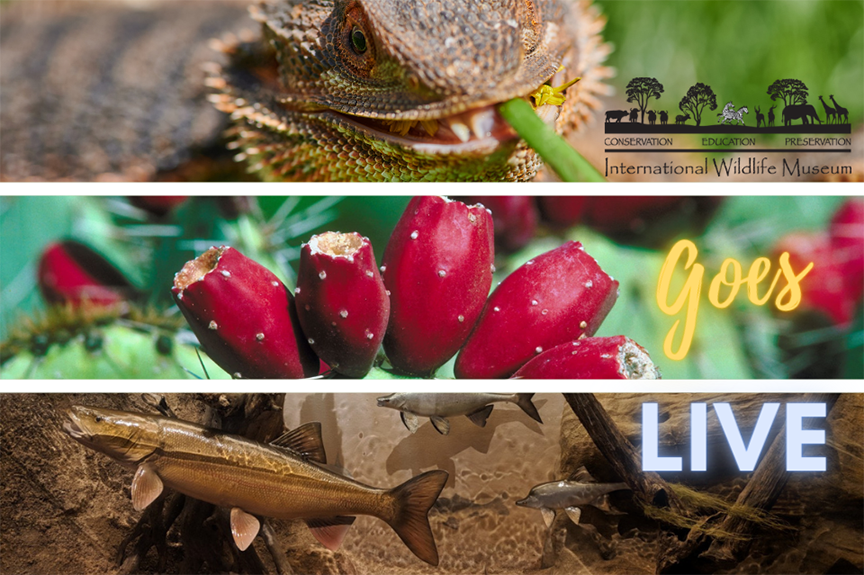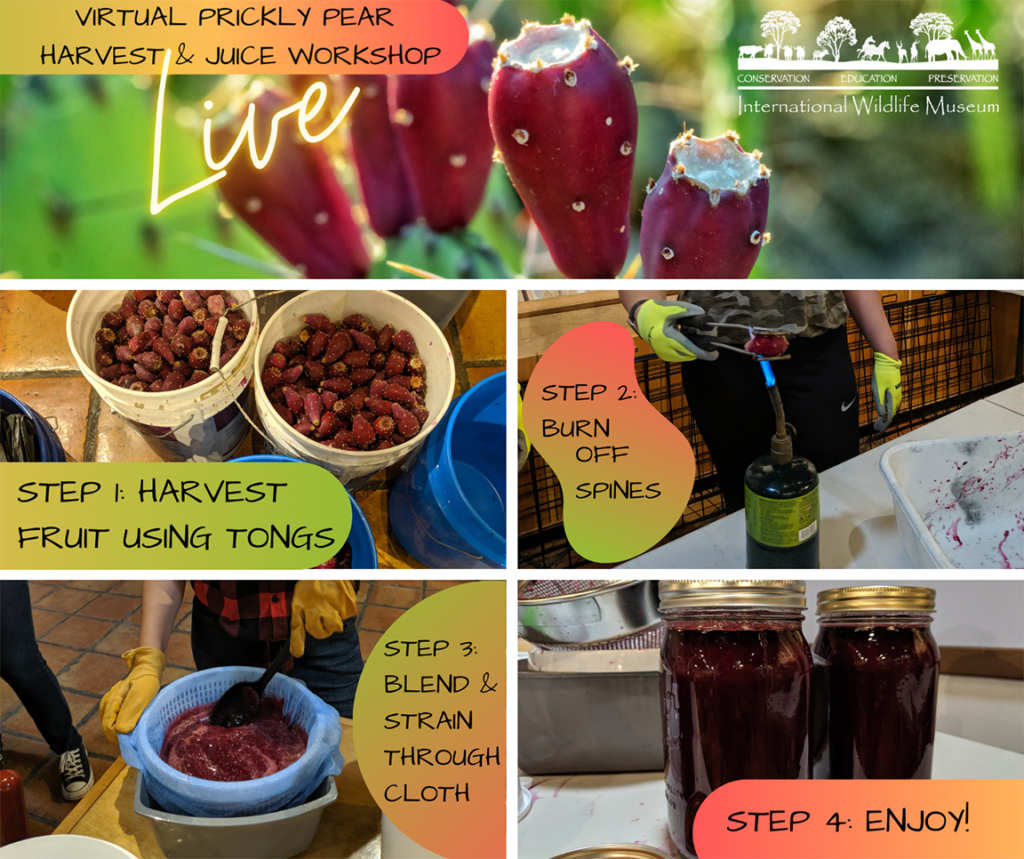
Over the last month, museum staff have done five different Facebook Live videos. Facebook Live is an opportunity for the community to interact with the museum on a live basis, while the museum is still closed, due to COVID 19. The museum can educate and people watching the feed are able to ask questions and comment in real time.
The first two Facebook Live videos were “Lunch with the Critters.” During each segment, viewers were able to meet live education animals, such as lizards, turtles, rats, snakes and of course, Wilbur the Museum Bunny. They were able to see what they eat and learn about their characteristics and adaptations.
The third Facebook Live was a “Prickly Pear Juicing” workshop. During the workshop, museum staff showed how to pick prickly pear fruit, how to prep it and then finally how to juice the fruit. Prickly pear fruit is native to Tucson, AZ, home of the museum, and can easily be obtained with landowner permission. Many people consider the prickly pear fruit a superfood, and it can be part of a healthy diet. It is high in fiber, antioxidants and carotenoids. It is promoted for treating high cholesterol, diabetes, obesity, hangovers and has anti-viral and anti-inflammatory properties. You can drink the juice by itself or add to lemonade, margaritas, smoothies and teas.

The fourth and fifth Facebook Live videos were tours of the museum. Each tour explored half of the museum and included the Teddy Roosevelt Room, Introductory Hall, Birds of the World, the famous McElroy Room, Sheep and Goat Mountain, Arizona by Night, the Arizona Game and Fish Exhibit and Bringing Back Wildlife exhibit. During the tours, people had the opportunity to learn about conservation and the role it plays in hunting, explore different habitats, learn about predator/prey relationships as well as see the diverse wildlife of the world.
Museum staff are continuing to do Facebook Live events to interact and educate the community, until the museum can re-open. Next week’s Facebook Live will be on Friday, September 18 and will focus on ocean wildlife science experiments like shark buoyancy, how whales stay warm and penguin camouflage. Materials will be posted ahead of time so families can do the experiments along with the video.

